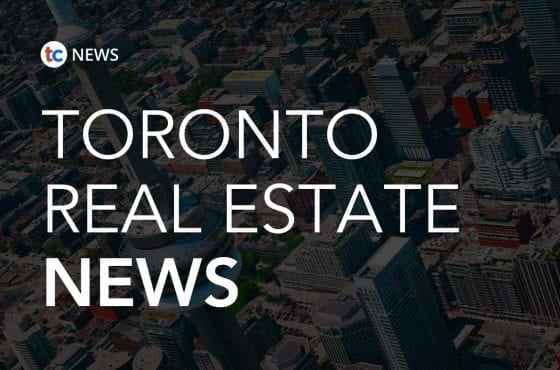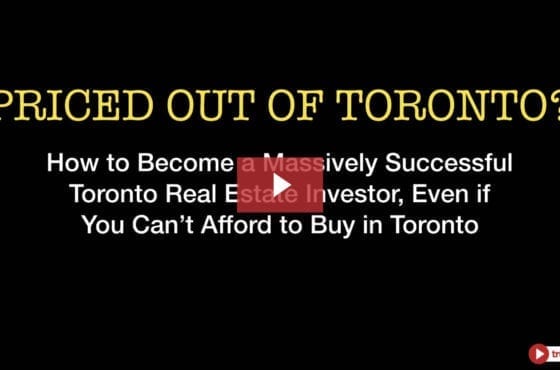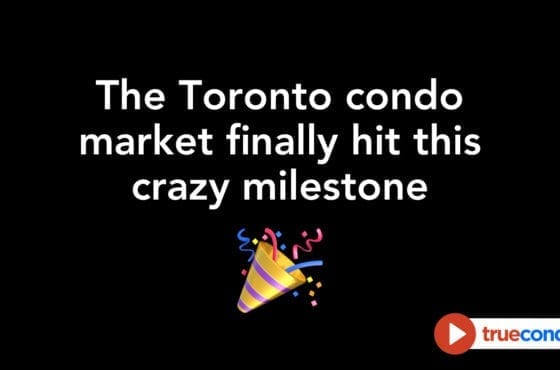65,000 vacant homes in Toronto: Do we have a problem?

Province stripping Tarion of builder-regulator role
Citing ‘conflict of interest’ concerns, the Ontario government will create a standalone home builder regulator separate from the warranty provider.

Toronto, province eye vacancy tax on unoccupied homes and rentals
An empty residence tax might curb property speculation and open up some housing for families.
What Will Better Than Expected GDP Growth Mean for Canadian Mortgage Rates?
Our GDP grew at an annualized rate of 2.6% in the fourth quarter of 2016 and last week we learned that it grew by another 0.6% in January. That momentum has economists now raising their GDP growth forecasts for the first quarter of 2017 to as high as 4%.

Igor Dragovic's Tweet
#Vacant #Housing in #Toronto and Toronto CMA is a non-issue! Please read up on how @StatCan_eng collects data before you make assumptions
TRANSCRIPT
Hi, today is Monday, April the 3rd, and this is what’s happening in the condo market this week. Before we jump into the articles, special shout-out to one of my favorite developers, Great Gulf. Great Gulf just took myself and a few other top-performing platinum agents down to Miami for the weekend to thank us for the great success that we had with selling home condos at Parliament and Adelaide and also give us a bit of a sneak peek on their next downtown project, which very much looking forward to that one coming up possibly late this year, maybe early next year. So stay tuned for that.
Let’s jump into the articles this week. The first one is from the Toronto Star talking about Tarion. This was big news in the past week. “Province stripping Tarion of builder-regulator role. Citing conflict of interest concerns, the Ontario government will create a stand-alone home builder regulator separate from the warranty provider.” So Tarion is the company that manages the warranty program for all new homes and new condos in Ontario. Basically until now, it’s more or less a self-policing, self-governing body where the builders are in some senses governing and policing themselves on this. Basically the province is saying, they’re gonna strip that out and create a separate entity, a separate regulator, to regulate that side of the business, which is interesting.
They’re also talking about perhaps bringing in more companies, so not just have one company doing the warranties, sort of breaking up a monopoly in that sense. Obviously good news for consumers. It sounds like good news at least for the consumer. On the surface, it will probably mean more regulation is gonna mean more taxes or more expenses. Somebody’s gonna have to pay for this, so ultimately is gonna be borne by the consumer in the form of higher real estate prices in the future. Which again, something we talk about a lot is whenever there are new taxes introduced, or new fees and development charges, and regulation, and any of this stuff that the government is putting on real estate, ultimately these are all inflationary pressures that will over time increase prices in real estate. It’s another reason why we buy real estate is it is a hedge against inflation. That’s just one example of how it works.
We’ll see. Hopefully this ends up being good news for consumers at the end of the day and hopefully makes the industry better. On the surface, like I said, it does make a lot of sense to do something like this, and we’ll see. We’ll see how this plays out. Definitely it will result in higher real estate prices in the future whenever this does come down.
We will look at the next article, which is also from the Toronto Star. Headline: “Toronto, province eye vacancy tax on unoccupied homes and rentals.” “An empty residence tax might curb property speculation and open up some housing for families” is the sub-headline. So yeah, key word is “might.” This might have some effect on the real estate market.
A lot of headlines around Toronto has 65,000 vacant homes. You might have heard that. You might have heard people talking about, “Look at all these vacant homes in Toronto.” The attachment to this is all these speculators, foreign buyers, whoever the boogie man is right now, are buying up properties, and they’re just leaving them sitting empty. This of course is completely bogus. Look around your neighborhood. Look around your friend’s neighborhoods. Talk to your colleagues at work. Are there any empty homes anywhere that you know of in your neighborhood? Are there any empty condos in your condo building that are just sitting there? It’s not happening.
Igor [Gargagoyovich 00:04:14] on Twitter, I’ll include a link below here, he had some great insights into this. Basically he was saying, “Look, the percentage of vacant homes in Toronto is unchanged. It’s the same as it’s been for the last 10, 15 years, more or less. Sure, the number of homes that are vacant, as defined by Stats Canada, is going up, but the city is growing. The total number of homes in the city’s growing, so the percentage of vacant homes is flat. It’s the same.
This is really a non-issue, vacant homes. If you look at how vacant homes are actually defined by Stats Canada, it includes so many different things. It’s not what you think where it’s just somebody’s buying a home, and they’re just leaving it empty and just basically speculation. That’s not the case.
Something could be vacant where it’s a brand new home that the builder has completed, or condo, but it hasn’t sold yet. That’s considered vacant. It could be you sold your house to somebody, and they bought it, and they took possession, but they haven’t moved in yet. That’s considered vacant. It could be things like you didn’t fill out the Stats Can survey, so that could be marked as vacant. It could be you’re renting your home to students, or somebody here on a temporary visa, or something like that where they don’t have a principle residence. Where they live is not declared as a principle residence. That’s considered vacant.
There’s no cause for alarm. There’s no wide scale conspiracy or speculation going on in the market where there’s all these homes just sitting there vacant. If you’re aware of some neighborhood, or some building where this is the case, I’d be happy to hear about that and see some hard evidence on this. But to date I haven’t seen any evidence to suggest that this is happening on this type of vacancy that you want to tax, that you wouldn’t want to eliminate in a market, because it would have a negative effect on the market. I’m not aware of that happening anywhere. I haven’t seen any hard evidence of that happening anywhere.
In principle, this is a good idea. In principle, yes, we should be against vacant homes, but this is not the solution to our so-called housing crisis and the rapidly rising prices of housing in this city.
The next article is a great piece by David Laroque. He’s a mortgage broker, and he writes weekly articles on mortgages, and mortgage rates, and what’s happening in the economy over on movesmartly.com. He had a great article this week talking about a recent speech that the Bank of Canada Governor Poloz recently gave at Durham College, his latest speech.
Basically, we’re trying to figure out now that the U.S. is raising interest rates, and they seem to be more rhetoric around them continuing to raise interest rates slowly this year, what’s gonna happen in Canada? Are rates gonna be going up here? Is the Bank of Canada gonna be changing their policy from what they’ve said for a long time, which is basically no interest rate hikes in the next 12 to 18 months? Is that gonna change? The latest GDP numbers showing that Canada’s economy’s actually growing a little bit better than expected. Basically, the answer is no.
There’s not gonna be any change to the policies as far as we know right now. Nothing to say that things could change, but there’s no indication that rates are gonna be going up anytime soon. The basic takeaway here from what the governor of the bank is saying is Canada’s economy is still in recovery mode. We’re still getting back on track, back to normality from the Great Recession. So we’re still slowly kind of rebuilding to where we were before and sort of trying to come out of the legacy of that Great Recession.
Also interesting of note, it’s springtime now, and mortgage rates, if anything, are actually coming down again. Every spring we see this. It’s a pattern, so get used to it, where the mortgage rates in around January, they tend to bump up a little bit. Then right around now, March, April, May, the banks really get into these mortgage wars to try to capture as much of the new mortgage market that’s coming out, and the spring market is possible. Now you can get mortgage rates, it looks like according to David, fixed rates as low as 2.44%, variable rates as low as, looks like 1.9%. I got a couple of mortgages in the past six months. I didn’t get anything close to that.
Mortgage rates have definitely come down, if anything, compared to six or nine months ago. Again, it’s still a very good time to be purchasing real estate and getting a fantastic mortgage rate if you’re closing properties that you bought pre-construction this year. Then get those pre-approvals in now, get those rates locked in, and you’re gonna be getting fantastic cash flow on anything that you bought pre-construction closing this year.
Okay, hope you enjoyed this video. That’s it for this week. Until next time, hope you have a great week, and we’ll talk to you soon.



